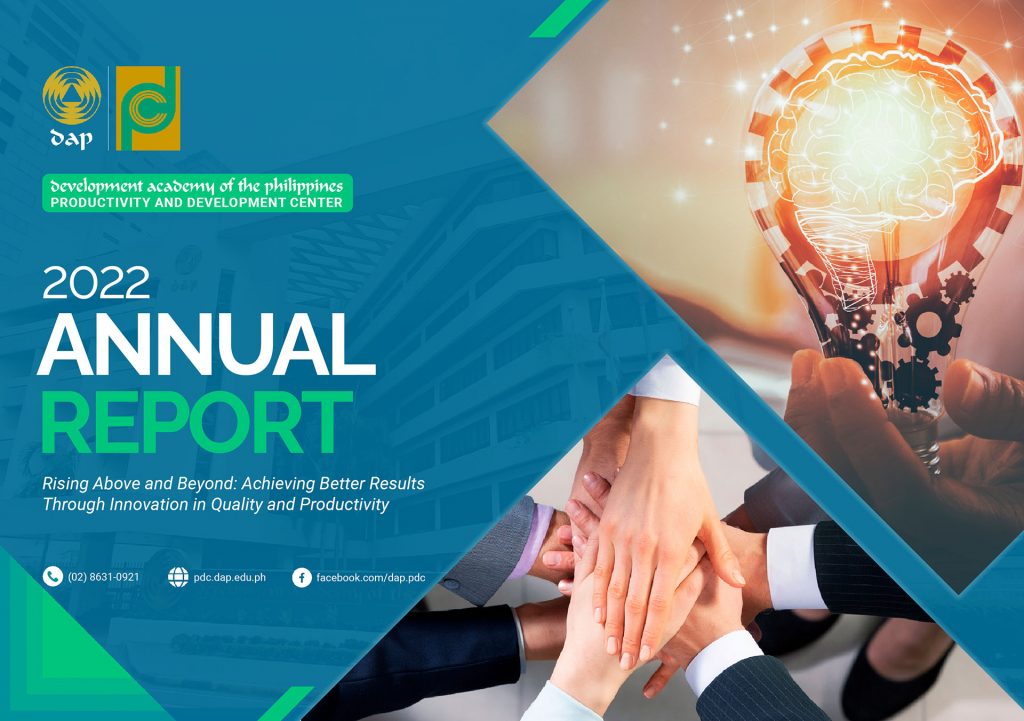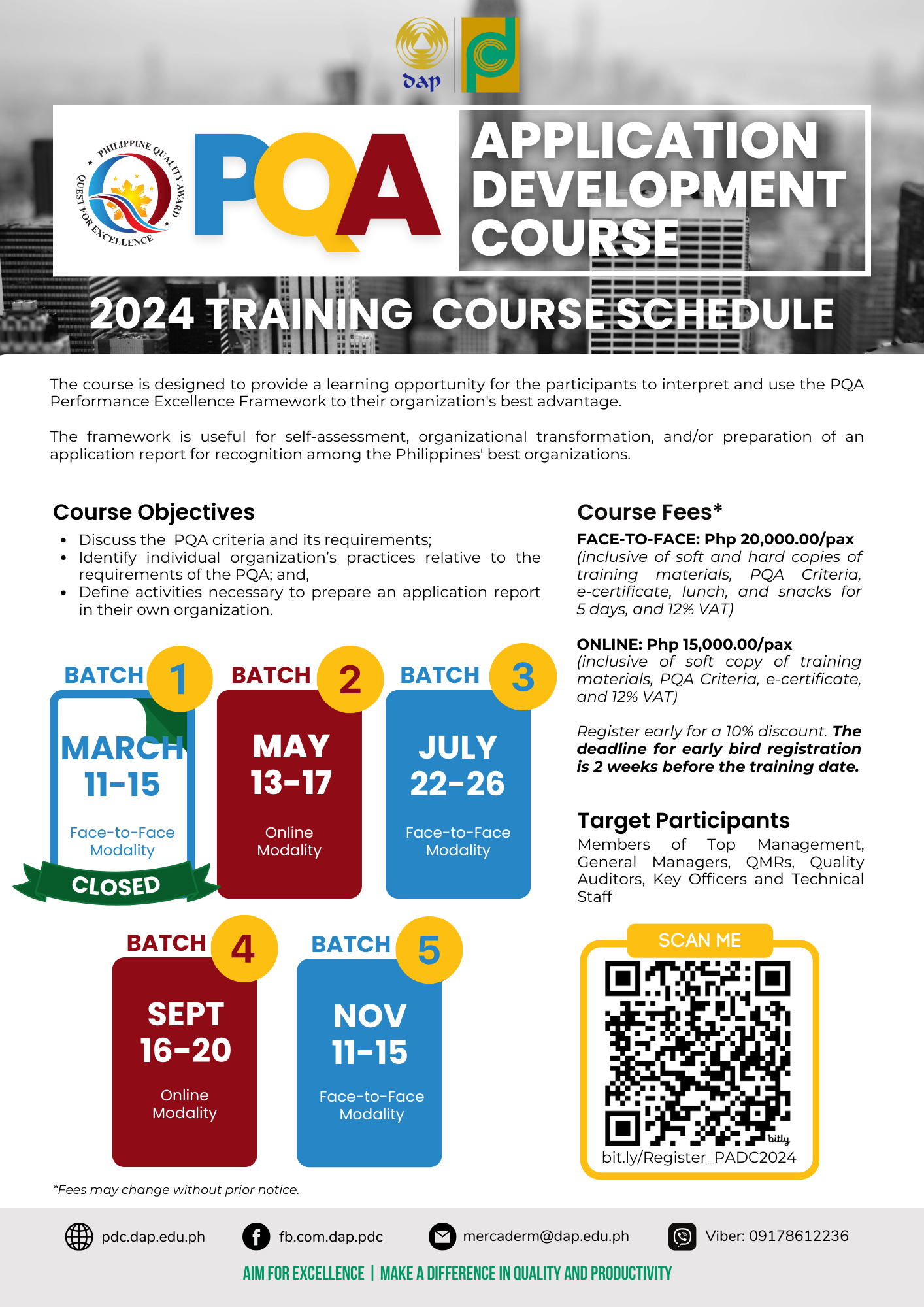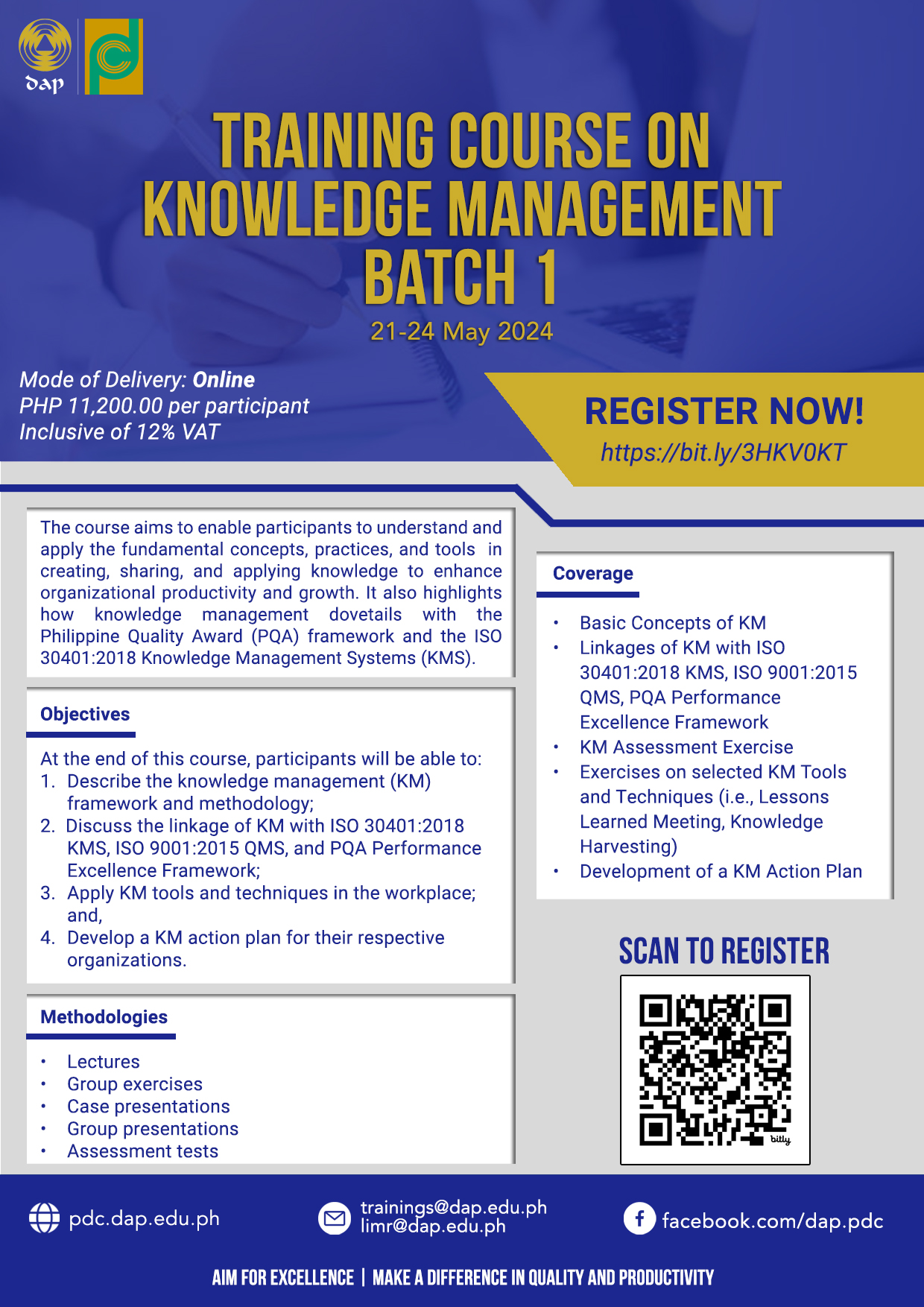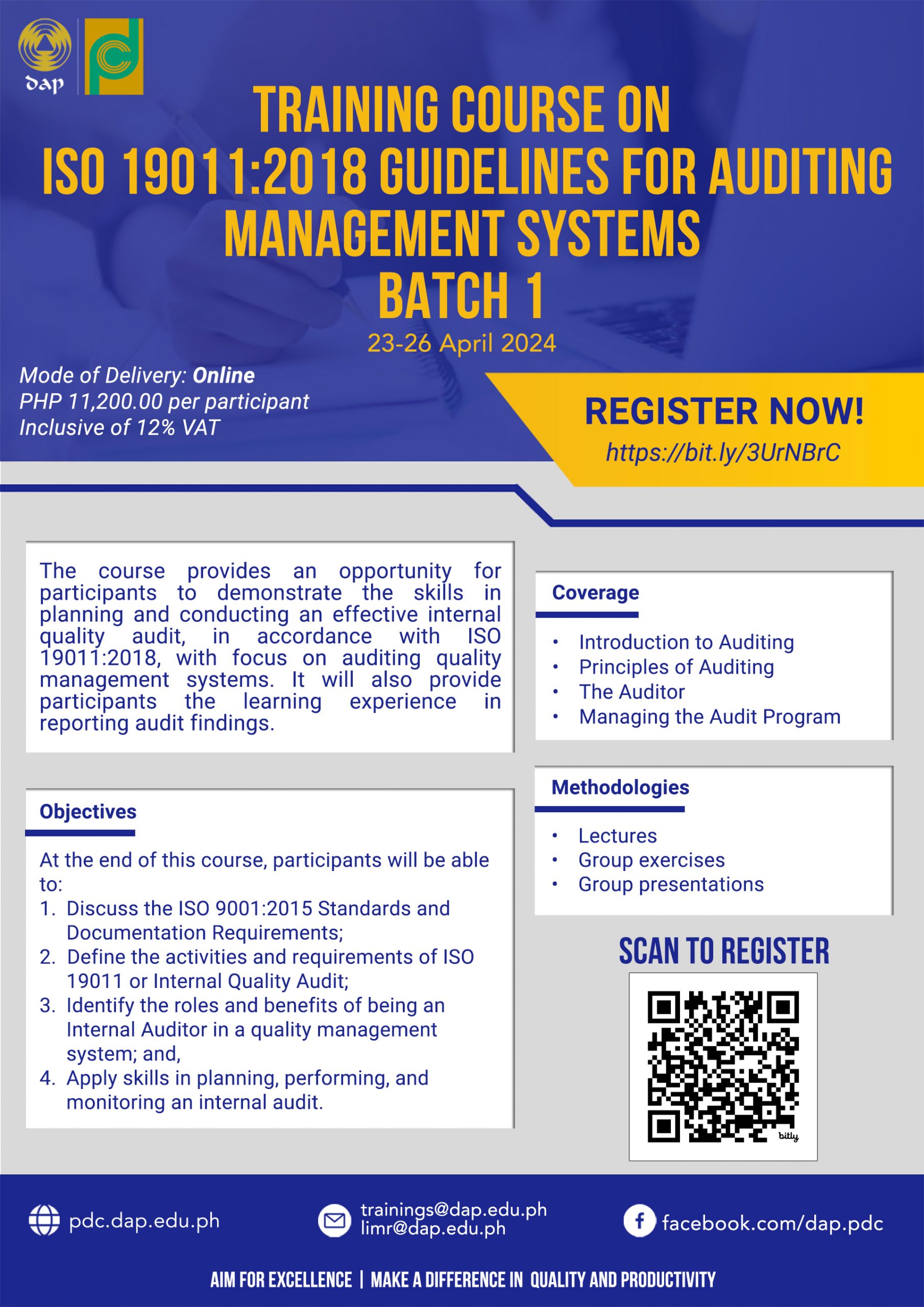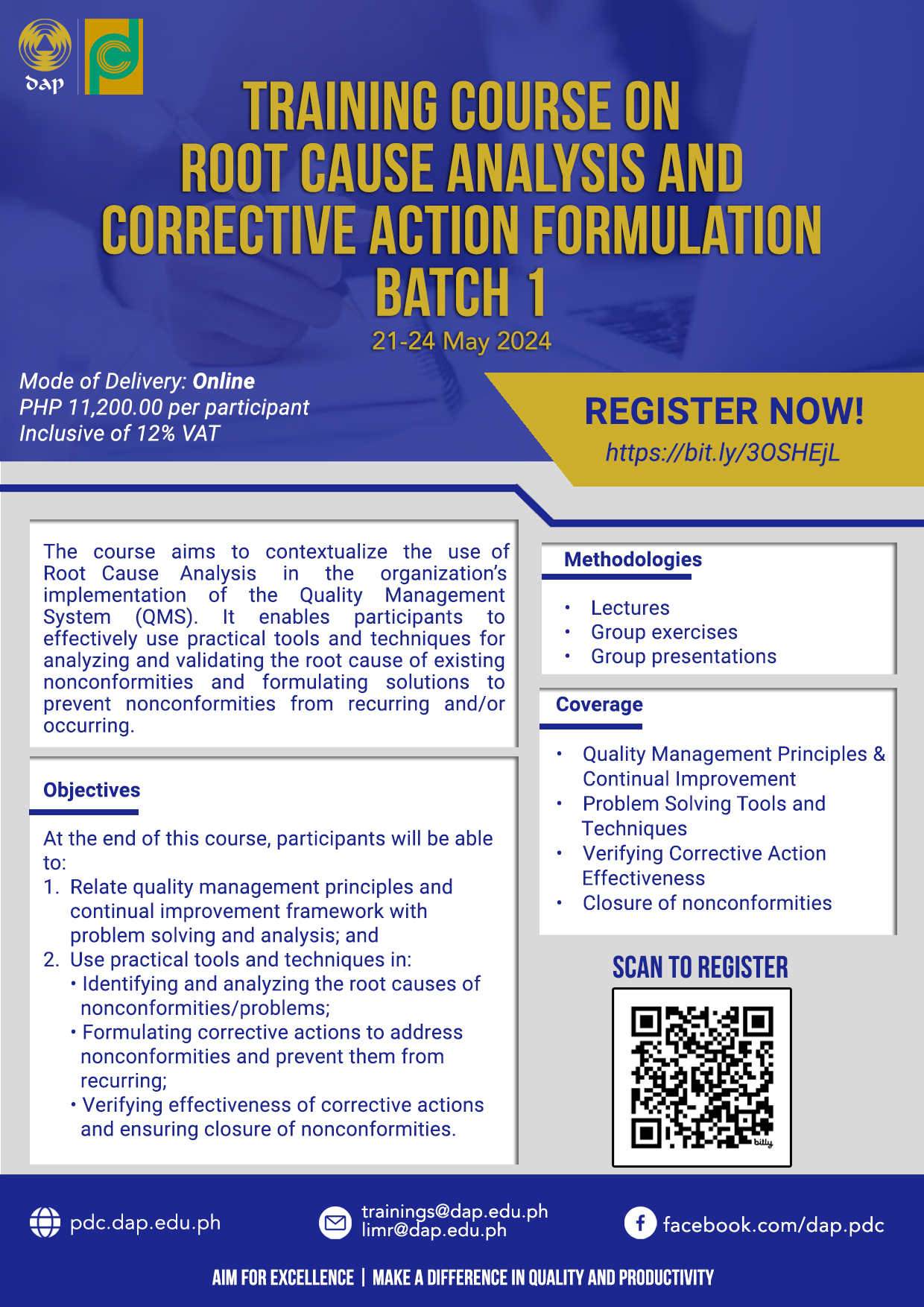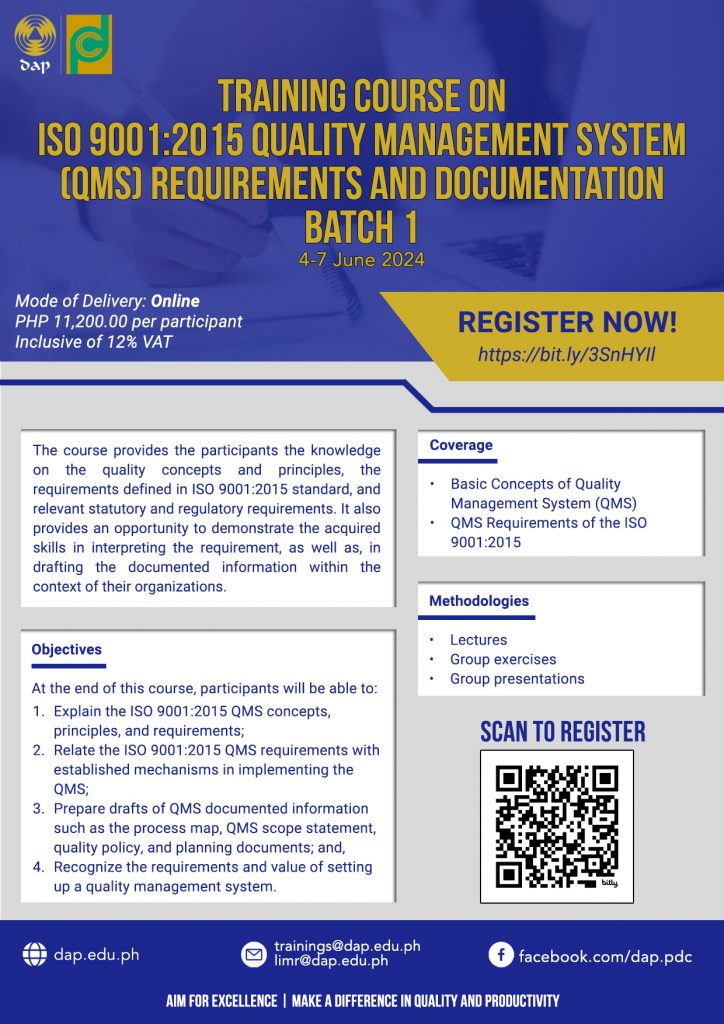The second wave of the Asian Productivity Organization (APO)-Asian Development Bank Institute (ADBI) study on the impact of COVID-19 on small and medium enterprises in the Philippines is being conducted by the Development Academy of the Philippines (DAP) from 17 January to 11 February 2022 on randomly selected business representatives across the Philippines.
With ten countries in Asia participating in this two-wave survey including Bangladesh, Cambodia, India, Indonesia, Lao PDR, Malaysia, Mongolia, Pakistan, Philippines, and Viet Nam, the study seeks to publish a report on the impact of COVID-19 on SMEs in APO member countries to help them in planning for effective strategies for assisting SMEs in recovering from the pandemic. Results of the study will also serve as evidence that will guide the ADB and policy makers in identifying approaches to assist SMEs experiencing economic downturns due to the COVID-19 pandemic.
Randomly selected business enterprises are invited to share their insights through the survey and help the government find ways to assist SMEs especially at this critical time of the pandemic. The 38-question survey instrument, accessible on a cloud-based platform, is user-friendly and will only take 10-15 minutes to accomplish.
Results of the first wave of the survey
Overall results of the first wave of the survey, which was conducted from July to August 2021, show that 93% of firms feel they would need more support from the government. The need for loan-and-tax-related support remains high, so does the need for lump-sum grants, subsidies for employees’ compensations, and better internet connectivity.
Over 75% of the SMEs faced cash flow difficulty during the pandemic. The shortage of raw materials has increasingly been a serious problem for about 60% of MSMEs. This could suggest that over 60% are also struggling to fulfill contracts, which slightly increased since early 2020. Thirteen percent of firms in aggregate level temporarily closed because of COVID-19.
The digitalization of SMEs has helped several businesses across Asia cope with COVID-19. The share of firms with online sales and volumes remains virtually unchanged over time at the aggregate level, while some countries see progress in SMEs’ digitalization and their use of social media for online marketing and selling.
Over 60% of firms in the Philippines and India have some online sales where online marketplaces are popular, while online sales in Mongolia and Malaysia remain around 30%. About 50% of firms in Pakistan use social media or mobile direct message services. While cash remains the most dominant payment method, online payment methods are rapidly becoming more prevalent.
The DAP will share more in-depth analysis of the study after the completion of the second wave survey including recommendations to help our SMEs recover from the impact of this pandemic.
XXX


